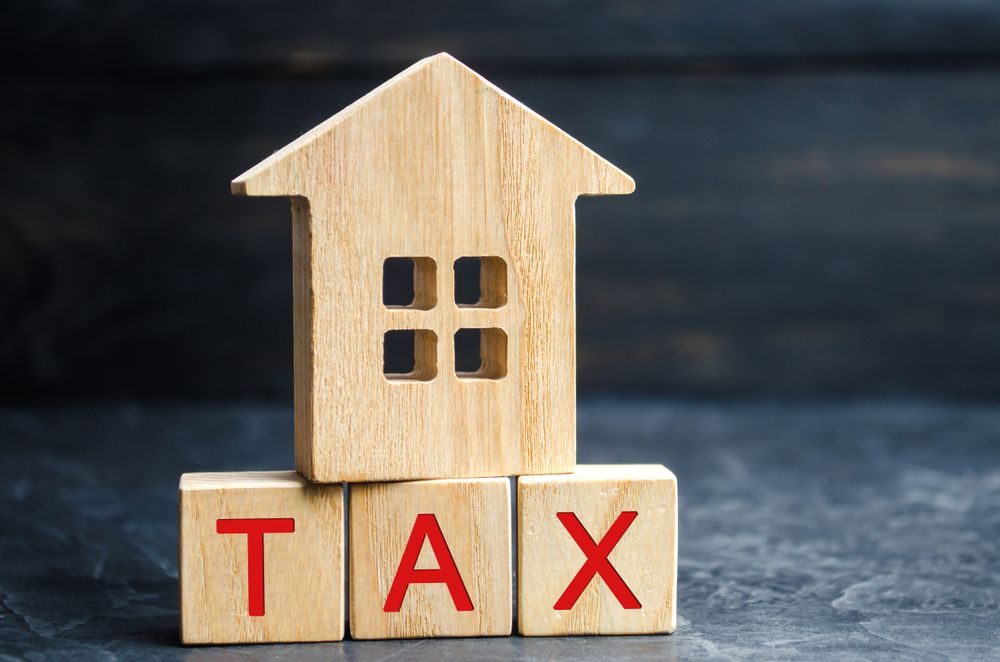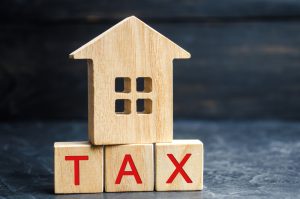NEW TAX VALUE IN THE PURCHASE, INHERITANCE OR GIFTING OF PROPERTY IN SPAIN

The newly introduced minimum tax value for real estate properties in Spain, introduced on the 1st of January 2022, is called “cadastral reference value” or in Spanish “valor de referencia catastral”. The old system was based on the cadastral value multiplied by a factor that varied per town hall and mostly lay significantly below the real market price. On the contrary, the new tax value approaches the real market price much more realistically, because -like an official price valuation for a mortgage- it´s based on actual selling prices in the area.
The new minimum tax value can be checked online through the website of the Cadastre by the cadastral number if you have a Spanish tax number and a digital certificate. Apart from the height of the value, the main consequence of this change is that -if available- it has become the new minimum tax value to always be declared in the purchase of real estate assets or its acquisition by inheritance or gifting/donating, in case the value in the deeds would be lower.
What are the effects on the different kinds of properties?
In practice, this reference value has entailed a general increase in the old minimum tax values. For instance, in Andalusia, we’ve seen cases of value increases in some properties of over 30% after 1 January 2022.
Standard vs. luxury properties
However, this new tax value does not have a special impact on the market for luxury properties or luxury villas, for example on the Costa del Sol. We are talking about areas such as the Golden Mile, Puente Romano or Sierra Blanca in Marbella, as well as in other towns with luxury properties such as Benahavis, Benalmadena, Fuengirola or Mijas, since their current market prices are relatively high.
Rustic or rural properties
Also, this change won´t have an effect on rustic/rural properties, for the reason that these don´t have this new tax value defined. You can in the last paragraph of this article how the Spanish tax authorities treat properties without this minimum tax value.
New build declarations
For new build declarations of existing properties, for example for an extension of the house, this value applies to the AJD stamp duty tax (Actos Juridicos Documentados), which in Andalusia is lowered to 1,2% since October 2021.
New build properties
In the purchase of normal new build properties from a developer, like in off-plan projects, the construction normally isn´t inscribed yet in the cadastre and therefore can´t have this cadastre reference value either at the moment of the signing of the purchase deeds. It´s not legal for the tax office to send you an additional payment request for the AJD tax basic on a cadastre reference value published after the signing of the purchase title deed.
However, this could be the case if you buy an existing new build property that already has the value defined and is sold for a lower price. In this case, the minimum value is only used for the AJD tax, not for the 10% VAT which is always calculated over the purchase price in the deeds.
What are the practical consequences of the new fiscal value on properties?
The new reference value is the official market value of properties for tax purposes, for which reason it needs to be taken into account by taxpayers during property purchases, inheritance or gift/donation executed after 1 January 2022.
The new reference value requires taxpayers to use this value as a minimum for the payment of taxes incurred during this property transfer. Just like in the earlier system of the minimum fiscal tax value that depended on index factors of the different Town Hall, its objective is to require taxpayers to pay the tax using this value without having to initiate value-checking proceedings as there already is an approved and predetermined reference value.
Have your lawyer check the tax value in an early stage
Of course, in order to know your total acquisition costs, it´s best to have this matter checked, preferably by a specialized real estate lawyer, in an early stage to avoid potential unpleasant and expensive surprises later on in the process. To consult this information a tax number and digital certificate from the Spanish authorities are needed. A good lawyer always checks this during the process of conveyancing in Spain.
What are the main taxes affected by the new tax value?
The buyers of a second-hand home, the heirs of a property or the recipients of a donation are the most affected by the reference value when they purchase, inherit or receive a property as a gift. In these property transfers, if the reference value is greater than the purchase price or the value stated in the deed, the new owner, heir or gift recipient must pay the corresponding taxes based on this reference value.
ITP property tax
The reference value is the tax value that determines the minimum taxable amount for the Transfer Tax (ITP), which is paid by the buyer of second-hand homes in Spain. In Andalusia, this tax is currently 7% of the price or value of the property purchased.
Inheritance tax
Likewise, the reference value applies to Inheritance Tax, which is paid as a minimum by heirs of a property in Spain. In Andalusia, following several legislative changes, this tax currently enjoys large exemptions and bonuses for close family members.
Gift/donation tax
Lastly, this tax value also determines the taxable amount in property gifts, which are paid by gift recipients who receive a property during the donor’s lifetime. In Andalusia, gifts also often are subject to much-reduced taxes, depending on the relationship to the receiver.
The gift would be affected by these reference values, for which reason donor tax residents in Spain will need to take this into account in their personal income tax returns. Remember that tax residents in Spain, when they gift a property, have to declare it as a sale and pay taxes on “assumed” capital gains. This doesn’t apply to sellers who are not tax residents, and therefore do not pay income tax on property gifts in Spain.
What happens to taxes paid when selling a Spanish property?
For property sellers, whether or not they are residents in Spain for tax purposes, there are two main taxes when selling a Spanish property, which is Capital Gain Tax and municipal tax called plusvalia.
Capital Gain Tax
In terms of IRPF, the seller pays taxes on the capital gain tax obtained from the sale of the property, if any profit has been made from the transfer. In this case, if the transfer has been for consideration, i.e. subject to a price being paid, the reference tax value does not affect the seller and the tax office cannot require payment of capital gains tax based of this. The administration could only require the seller to apply a higher value if a value-verification procedure has been initiated before, but this procedure is different from cadastral reference values.
Plusvalue tax (Plusvalia)
The new tax value doesn´t have any relation to the Plusvalue tax of the Town Hall over the increased worth of the property either when it concerns a normal sale. However, in donations/gifts it does affect, so we advise you to consult your lawyer on this matter.
Is the local IBI property tax or the IRPF/IRNR income tax affected by the introduction of this new tax system?
No, neither the yearly IBI property tax of the Town Hall nor your IRPF or IRNR income tax will change as they are calculated over the cadastral value and not the new minimum tax value.
What would happen if I don’t apply the new minimal fiscal value to my purchase?
If the reference value is greater than that specified in the Deed during the purchase of a property, the buyer will receive a notification from the Tax Administration with a tax assessment. This assessment will be to pay the tax that was not paid, on the difference between the reference value and the deed value, including any interest.
Penalty procedure from the Spanish tax authorities
At the same time as this assessment notice, the Administration may start penalty procedures, as the taxpayer didn’t apply the established reference value in the appropriate tax return. The penalty would be equal to 50% of the unpaid tax and a reduction of 30% may be applied with the agreement of the taxpayer and timely payment, as established in the notice.
In the event that the reference value is greater than the actual or declared value, if taxpayers choose not to pay the tax based on the reference value, they must be willing to appeal it. Otherwise, the economic damage will be greater than if the tax had been paid based on the reference value. It is no longer advisable to wait and see what the administration does as this assessment will certainly arrive, along with a very likely financial penalty.
What if I disagree with the tax value and wish to appeal?
If you disagree with the reference value of the property, the main argument for a claim should be that it does not represent its real market value. For this purpose, it is essential to obtain an official appraisal/valuation of the property showing that the reference value is excessive and does not reflect market values. In other words, it is necessary to have an appraisal to prove an error in the reference value established by the administration.
What are the risks of an incorrect tax application?
The main risk to taxpayers making such a claim is for the value not to be upheld in this procedure and the reference value being confirmed for tax purposes. In this case, the penalty of 50% of the unpaid amount would be due in full, with no reduction possibilities, in addition to default interest over this amount, which would be higher, in particular because it would take several years for the procedure to be settled. It would be necessary to take into account the cost of an appraisal in this consideration plus the fees of the solicitor involved in this procedure.
What is the likelihood of obtaining a favorable resolution in this appeal procedure?
Since these are property values that entered into force on 1 January 2022, there is still no precedent for claims and it is not possible to know what the administrative authorities and courts will decide in these proceedings in the future.
New tax value versus the official valuation, for example in case of a mortgage
Our law firm C&D Solicitors currently has various foreign clients who have purchased properties in Marbella, Benalmadena and in Ronda, where the reference value is significantly higher than the purchase price. In one of the cases, the purchase was executed with a mortgage and it turned out that the mortgage appraisal while being higher than the purchase price, was significantly lower than the reference value of the property.
In this case, if buyers are willing to file a claim, our recommendation is to pay the Transfer Tax based on the property appraisal value, as we can understand that this is the real market value of the property (even if it is higher than the purchase price).
Advice for buyers who are willing to challenge this reference tax value is to have a property assessment (valuation) showing that the value is excessive and to pay the transfer tax based on this appraisal, attaching their Deed of Sale to it. This will not prevent the administration from requiring payment based on the reference value but it can be helpful during the subsequent appeal procedure. However, as this change is very new, the likeliness of success in an appeal procedure can´t be predicted yet and we recommend you seek advice from your lawyer in order to evaluate the costs versus potential benefits.
What happens to properties without the new tax value?
There are properties that (still) do not have this official reference value. For this reason, the value declared in the deed will be understood to be the market value of the property and, if the administration determines otherwise, it would have to start a value-verification procedure itself.
Minimum tax value for rustic or rural properties
Properties without an associated reference value include most of the rural properties, i.e. properties located in non-developable land, such as chalets, country houses, B&Bs, etc. Fortunately, this reference value does not apply to most of the purchase or inheritance of rural properties, which generate so many purchase transactions in Andalusia and the Malaga province, in places such as la Axarquía, Valle del Guadalhorce or Mijas, where they are very usual, as well as in the provinces of Cádiz and Granada.
Author: Gustavo Calero Monereo, lawyer at C&D Solicitors Torrox, Malaga





















